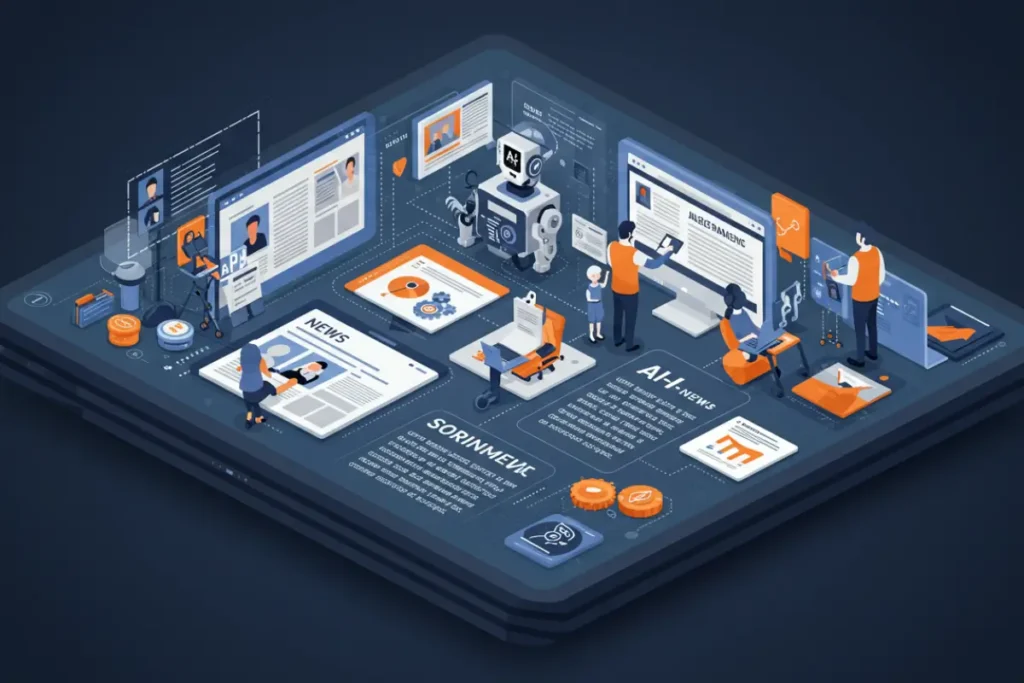The Rise of AI-Generated Journalism
- March 17, 2025
- 0
In recent years, artificial intelligence (AI) has made its way into nearly every industry, from entertainment to healthcare, but one of the most interesting developments has been in
In recent years, artificial intelligence (AI) has made its way into nearly every industry, from entertainment to healthcare, but one of the most interesting developments has been in

In recent years, artificial intelligence (AI) has made its way into nearly every industry, from entertainment to healthcare, but one of the most interesting developments has been in the field of journalism.
AI is increasingly being used to generate news articles, reports, and other forms of written content.
And if it would help a lot in the journalism market, I saw it helping to revitalize this market that is still very cold today where social networks have become a means of information.
As someone deeply involved in technology, I’m excited to explore how AI-generated journalism is shaping the news landscape and how it could potentially revolutionize the way we consume information.

AI-generated journalism refers to the use of artificial intelligence algorithms to produce written content, including news articles, blogs, and even investigative reports.
These AI systems are designed to analyze large amounts of data, identify key facts, and then generate coherent text based on that information.
The rise of AI tools like OpenAI’s GPT models and other machine learning systems has made it easier for media outlets to generate articles quickly and efficiently.
AI journalism has been used to cover a range of topics, from sports scores to financial reports, and even breaking news.
The main appeal is speed and efficiency. AI can process vast amounts of data in real time, generating content that would take human journalists hours or even days to write. But is this the future of news? Let’s dive into the advantages and challenges of AI-generated journalism.


While AI-generated journalism offers numerous benefits, there are several challenges and ethical concerns that need to be addressed.

The question on everyone’s mind is whether AI will eventually replace human journalists. The answer, for now, is no. While AI is making strides in automating certain aspects of journalism, it cannot fully replace human reporters.
Journalism involves more than just writing — it requires investigation, critical thinking, and human judgment, all of which AI lacks.
AI can be an invaluable tool for journalists, helping them analyze data, write routine stories, and even generate ideas for new articles.
However, the core principles of journalism — ethics, creativity, and critical thinking — remain firmly in the hands of humans. AI is more likely to complement human journalists, not replace them entirely.
Looking ahead, AI will continue to play an increasing role in journalism. The technology is still in its infancy, and as it develops, we can expect even more sophisticated AI tools that can produce highly accurate, engaging, and personalized content.
However, human journalists will always be essential in providing the depth, analysis, and perspective that AI cannot replicate.
As someone who loves staying on top of technological trends, I believe that AI will only enhance journalism, making news production more efficient and accessible.
I don’t believe that AI will automatically make journalism strong again, but it’s a great start.
If anything, it could open up new possibilities for writers to focus on more creative and in-depth projects, leaving the routine reporting tasks to the machines.
If you found this article interesting, feel free to comment below! I’d love to hear your thoughts on AI and its role in the future of journalism. Also, don’t forget to share this article with your friends and colleagues! 🌐
If you enjoyed this article, check out some more fascinating reads on Futuristic Intellect.